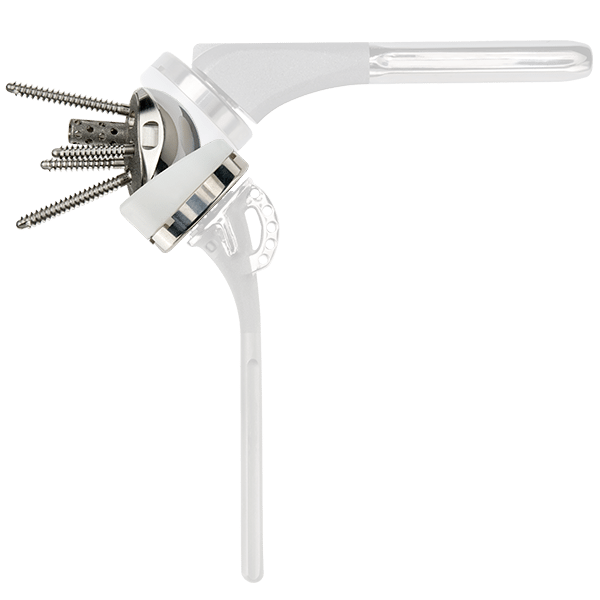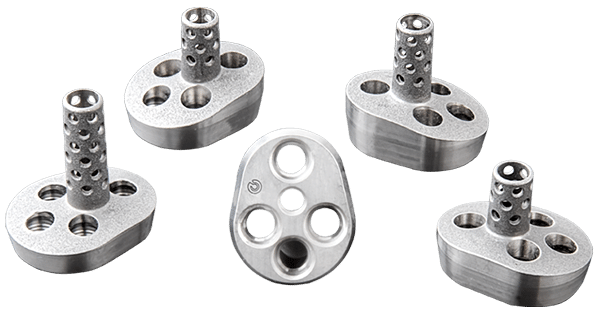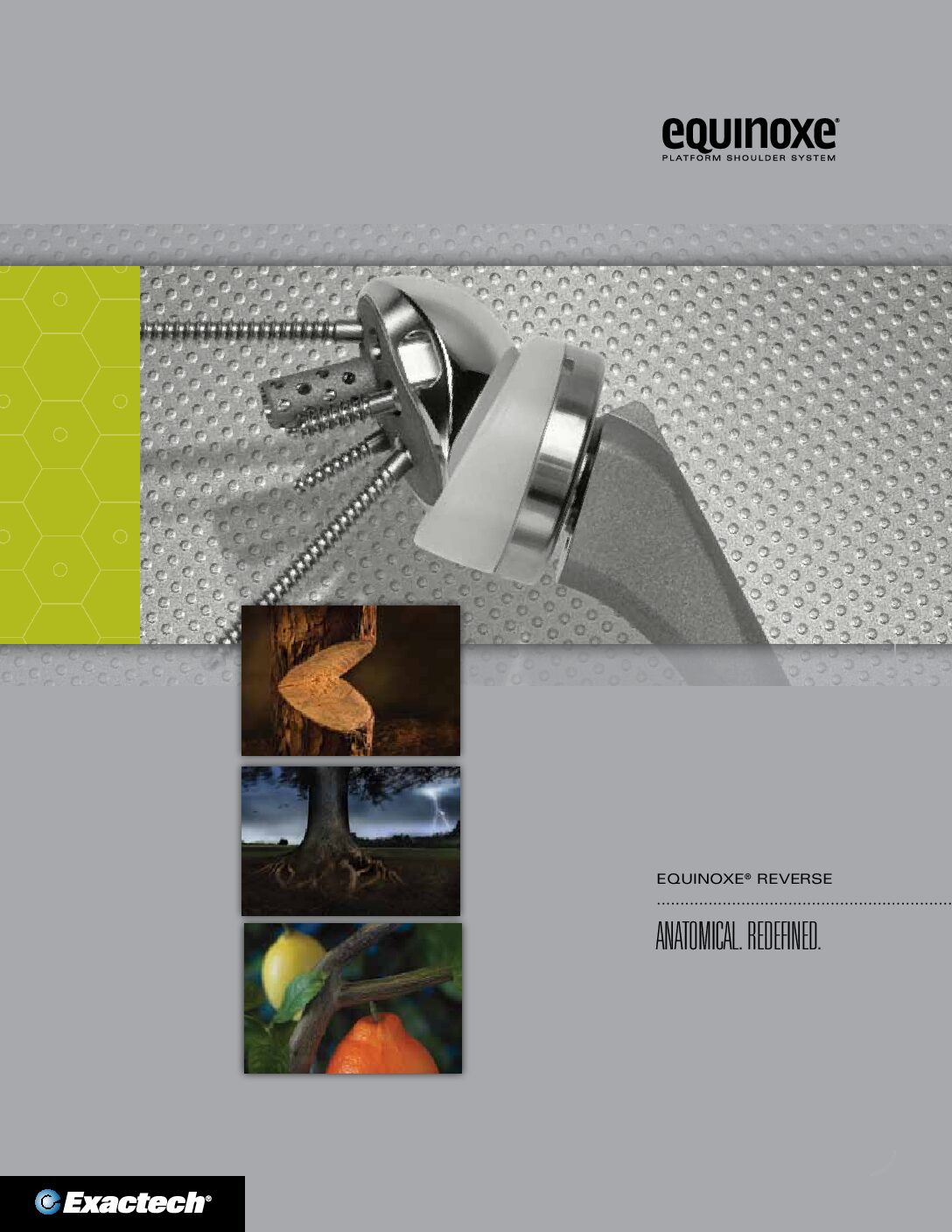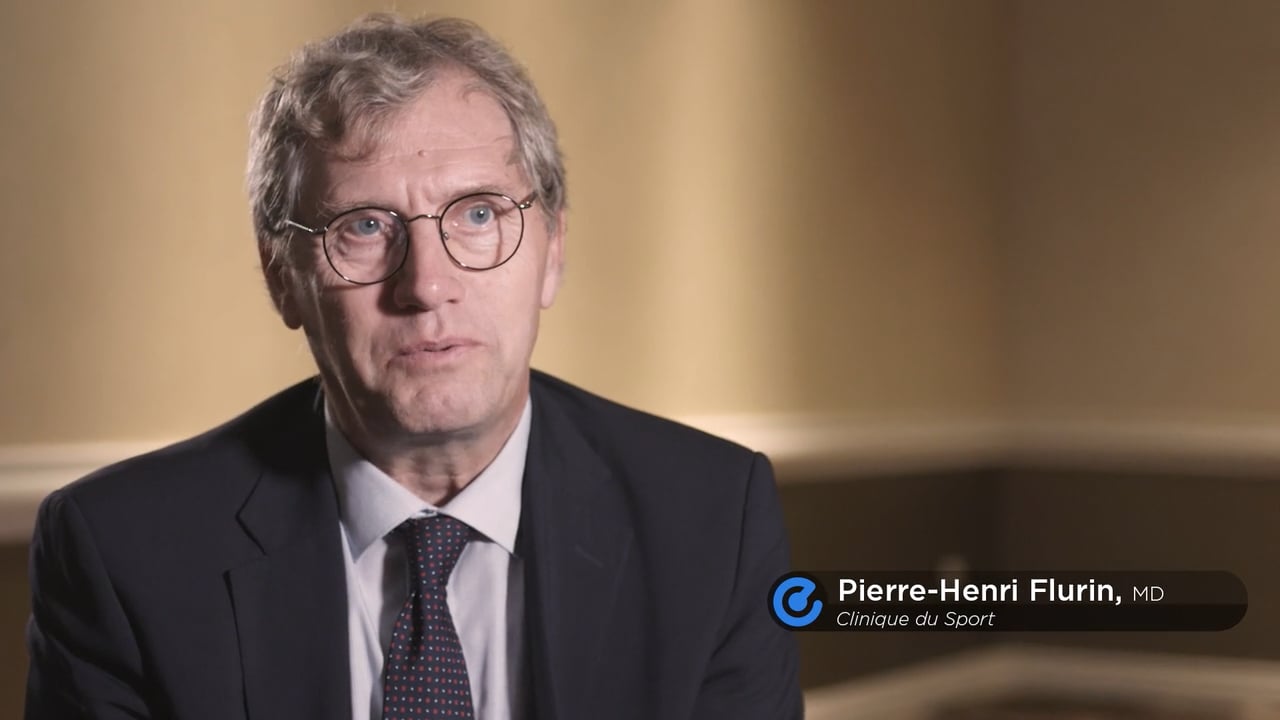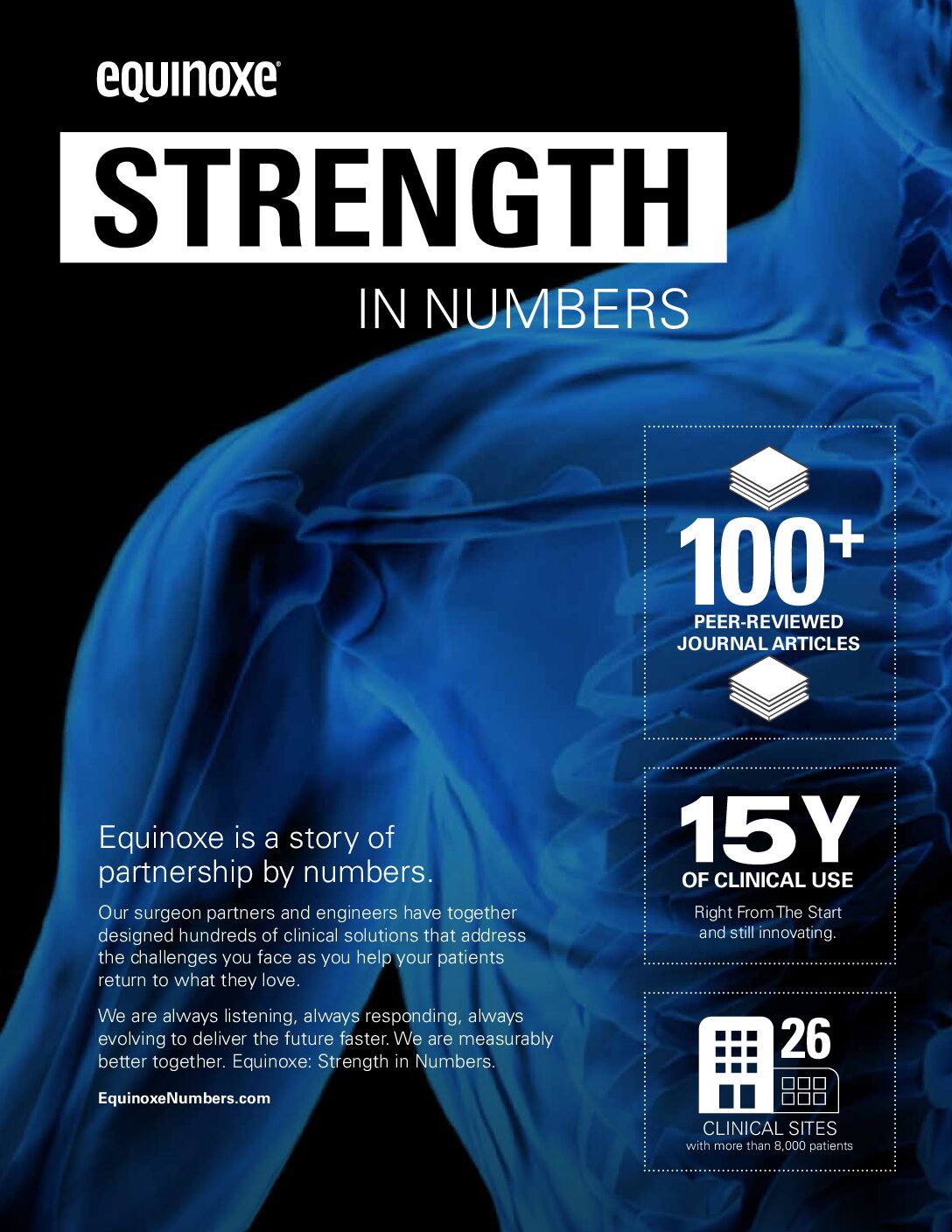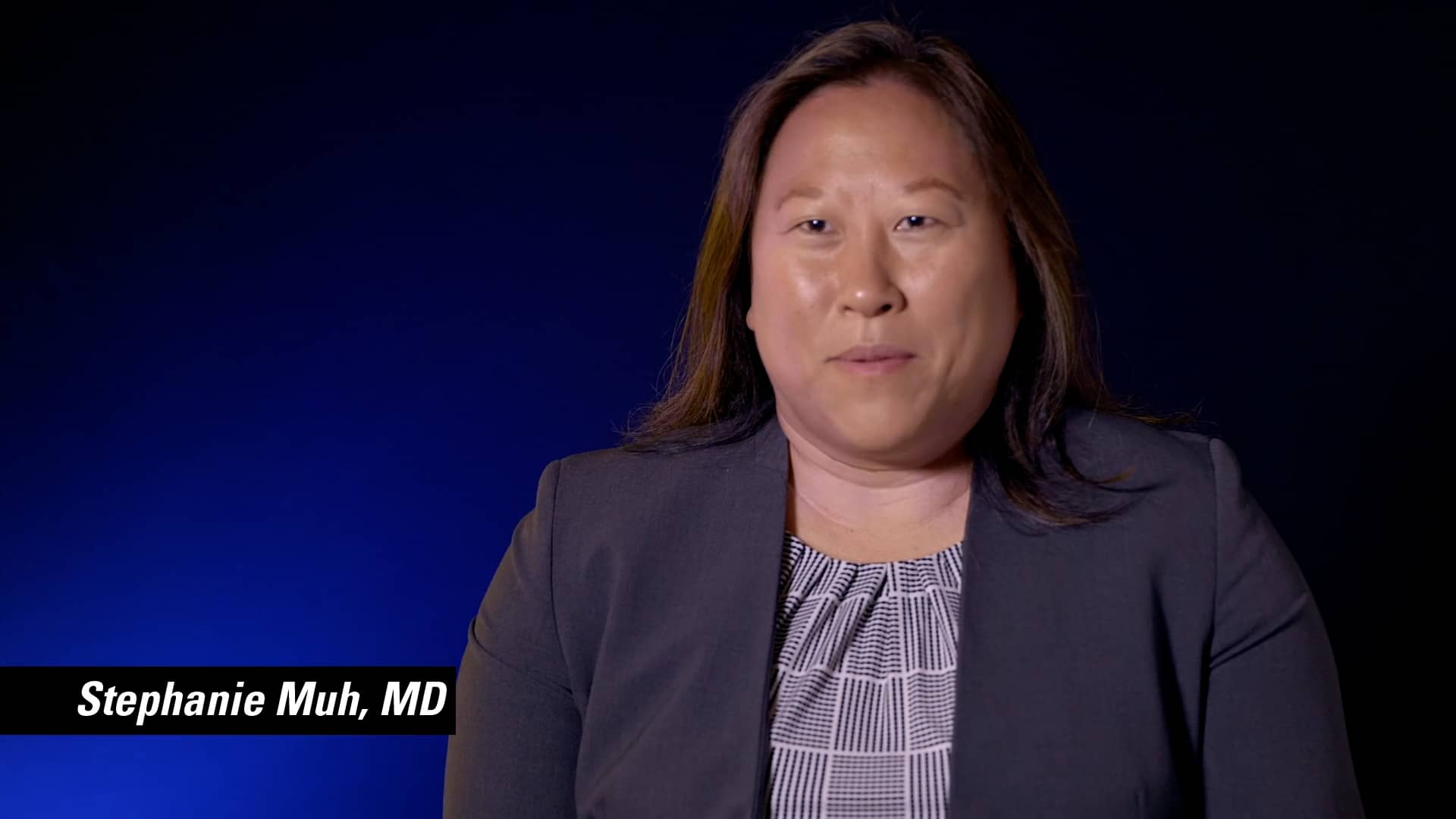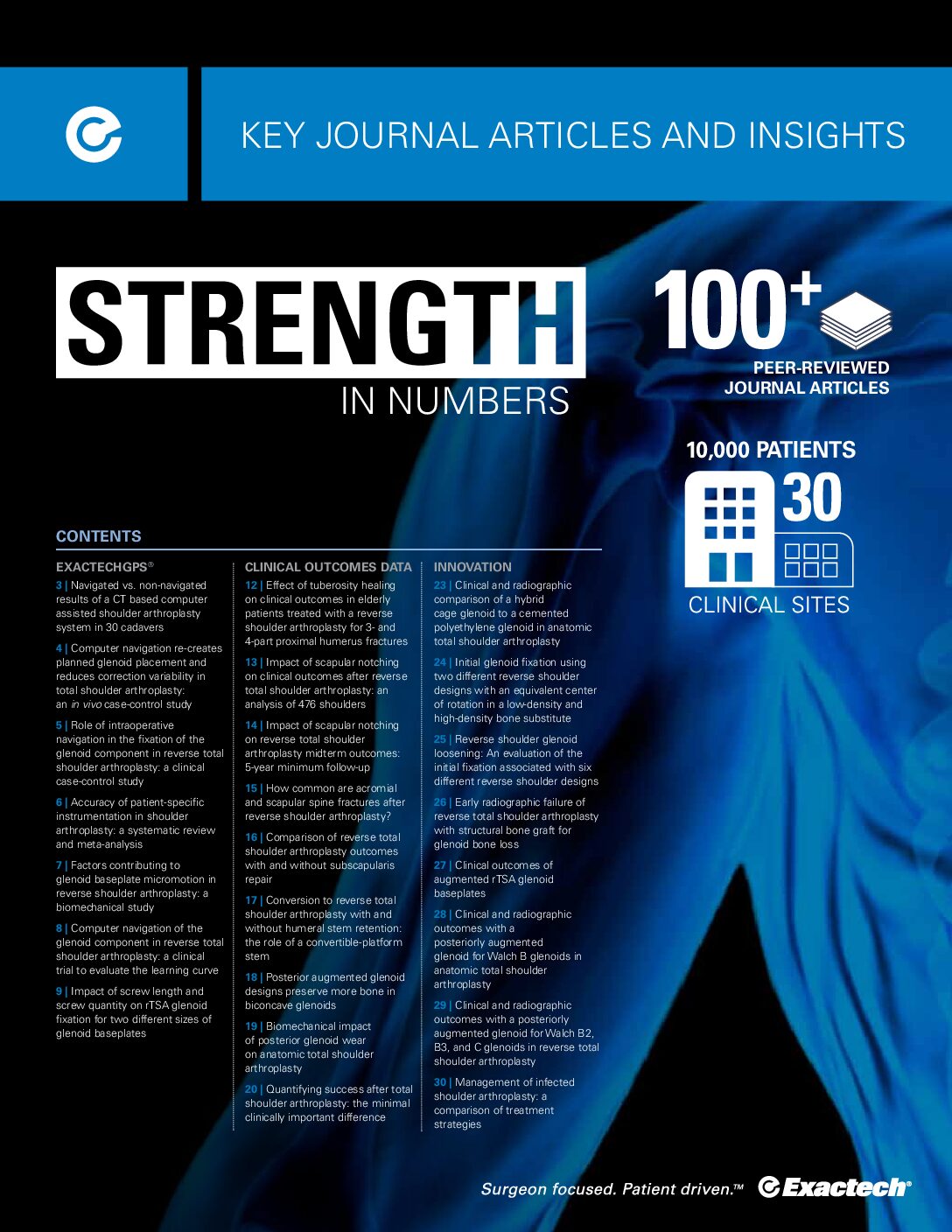Its components build off the Equinoxe anatomic and fracture humeral stems, which provides intra-operative flexibility and enables surgeons to convert a well-fixed stem to a reverse without stem removal.
The Humeral Reconstruction Prosthesis offers flexibility for complex humeral reconstruction cases.

